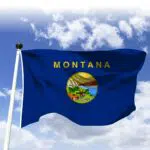National Hurricane Preparedness Week is a week-long nationwide effort in the first or second week of May. This year, it is observed from May 3 to 9. Its purpose is to get the country prepared in case a hurricane strikes. With record water levels being reached, we need Hurricane Preparedness Week now more than ever. A hurricane, also known as a tropical cyclone, is a rotating storm system characterized by strong winds and a spiral arrangement of thunderstorms. Each day during Hurricane Preparedness Week, a specific hurricane-related topic is addressed, from storm surges to the disaster planning process, evacuation zones, emergency alerts, home fortification tips, and supplies needed.
History of Hurricane Preparedness Week
National Hurricane Preparedness Week was originally known as National Hurricane Awareness Week. ‘Awareness’ was switched out for ‘Preparedness’ because people can be aware of something and not be prepared for it. Thus, in 2004, National Hurricane Preparedness Week emerged as an effort to spread information to the public about how to prepare and take action before, during, and after a hurricane.
Each year, the dates for Hurricane Preparedness Week are declared, and different states sometimes set their own dates for the observance of the week. The topics for each day are also announced each year, with the ultimate goal of ensuring every family in the United States has a disaster plan, every business has a disaster checklist, and every person survives the hurricane with minimal loss or damage.
It’s no coincidence that the week is set at the start of hurricane season, which occurs from May to November. The United States has suffered many powerful and deadly hurricanes since it started recording them in 1851. The deadliest hurricane in U.S. history is the Galveston hurricane of 1900, which killed between 8,000 to 12,000 people. Hurricane Maria of 2017 is the second deadliest, causing 3,057 fatalities. Hurricanes in the United States have caused damages of up to hundreds of billions — Hurricane Katrina and Hurricane Harvey alone resulted in the loss of $125 billion.
With the amount of loss of lives and property the United States has incurred from hurricanes, it’s no wonder we need an entire week dedicated to teaching people how to stay safe before, during, and after a hurricane.
Hurricane Preparedness Week timeline
Father Benito Vines of Cuba sets up the first hurricane warning service, which is later taken up by the United States Signal Corps and the United States Weather Bureau.
On June 1, the National Hurricane Information Center is established in Miami as a warehouse for all hurricane-related information in the United States.
This is the most active decade for hurricanes in the United States, with a total of 31 hurricanes affecting the country.
National Hurricane Awareness Week is renamed National Hurricane Preparedness Week because the U.S. government realizes that awareness doesn’t always mean being prepared.
Hurricane Preparedness Week FAQs
What year did the U.S. have the most hurricanes?
The 2020 hurricane season broke the previous record of most hurricanes set in 2005. There were 30 named storms in 2020, two more than in 2005 — 14 of these storms became hurricanes and seven became major storms.
How many hurricanes have hit the U.S. since 1851?
Since 1851, when the Atlantic Hurricane Database was created, there have been 303 North Atlantic hurricanes that have produced hurricane-force winds in 19 states along the Atlantic coast. However, not all of these storms made direct landfall.
Which country has the most hurricanes?
China has had the most typhoons or hurricanes in the world. There have been at least 127 typhoons that made landfall in China from 1970 to now.
How to Observe Hurricane Preparedness Week
Create a disaster plan
Everyone needs a written disaster plan. Your plan will answer questions about shelter, best evacuation routes, effective communication methods, e.t.c. You can tailor your plan based on the specific needs of your household and have regular meetings to review the plan with your loved ones. Observe Hurricane Preparedness Week by making sure you and your loved ones know, understand, and remember your hurricane emergency plan.
Fortify your home
Your home might be sturdy, but is it sturdy enough to handle a hurricane? Look up local hurricane building code specifications and make sure your home meets them. You can also check to see if your home insurance company covers flooding.
Gather supplies
You need to have enough supplies to make it through the hurricane period — before, during, and after a hurricane hits. From radios to flashlights and solar-powered chargers, you need to ensure you have everything you and your loved ones need to survive a hurricane. You should also regularly restock on non-perishable food, water, and medicine to last for at least three days.
5 Interesting Facts About Hurricanes
Evil wind spirit
The term ‘hurricane’ was derived from the Taino Native American word ‘hurucane,’ which means the “evil spirit of the wind.”
The 300-year-old hurricane
Planet Jupiter has a hurricane that is bigger than the Earth itself and has been spinning for 300 years.
Atomic energy
Every second, a hurricane releases the same amount of energy as 10 atomic bombs.
Hurricane Florida
At least 40% of the hurricanes that happen in the United States occur in Florida.
It’s only a “hurricane” in the U.S.
Hurricanes are only known as ‘hurricanes’ in North America — they are called ‘typhoons’ in Asia and ‘tropical cyclones’ everywhere else in the world.
Why Hurricane Preparedness Week is Important
Hurricanes have been getting worse
Because of climate change, sea levels have been rising, which means storm surges from hurricanes will be inherently worse. Until we can solve the problem, the least we can do is be prepared for it.
It’s all about saving lives and property
Hurricane Preparedness Week is about saving people by giving them the resources and tools to protect themselves. If more people knew what to do during a hurricane, we would have fewer losses of human lives. By preparing yourself and your loved ones, you are a real-life hero.
It doesn’t hurt to be prepared
The Boy Scouts’ motto “Be prepared” is truly apt. Sure, you might need to take a little timeout to read up on hurricane emergency tips, but the sacrifice is certainly worth it. Worst case scenario, you’ve learned everything and, hopefully, no hurricane hits.
Hurricane Preparedness Week dates
| Year | Date | Day |
|---|---|---|
| 2024 | May 5–11 | Sunday–Saturday |
| 2025 | May 4–10 | Sunday–Saturday |
| 2026 | May 3–9 | Sunday–Saturday |






































